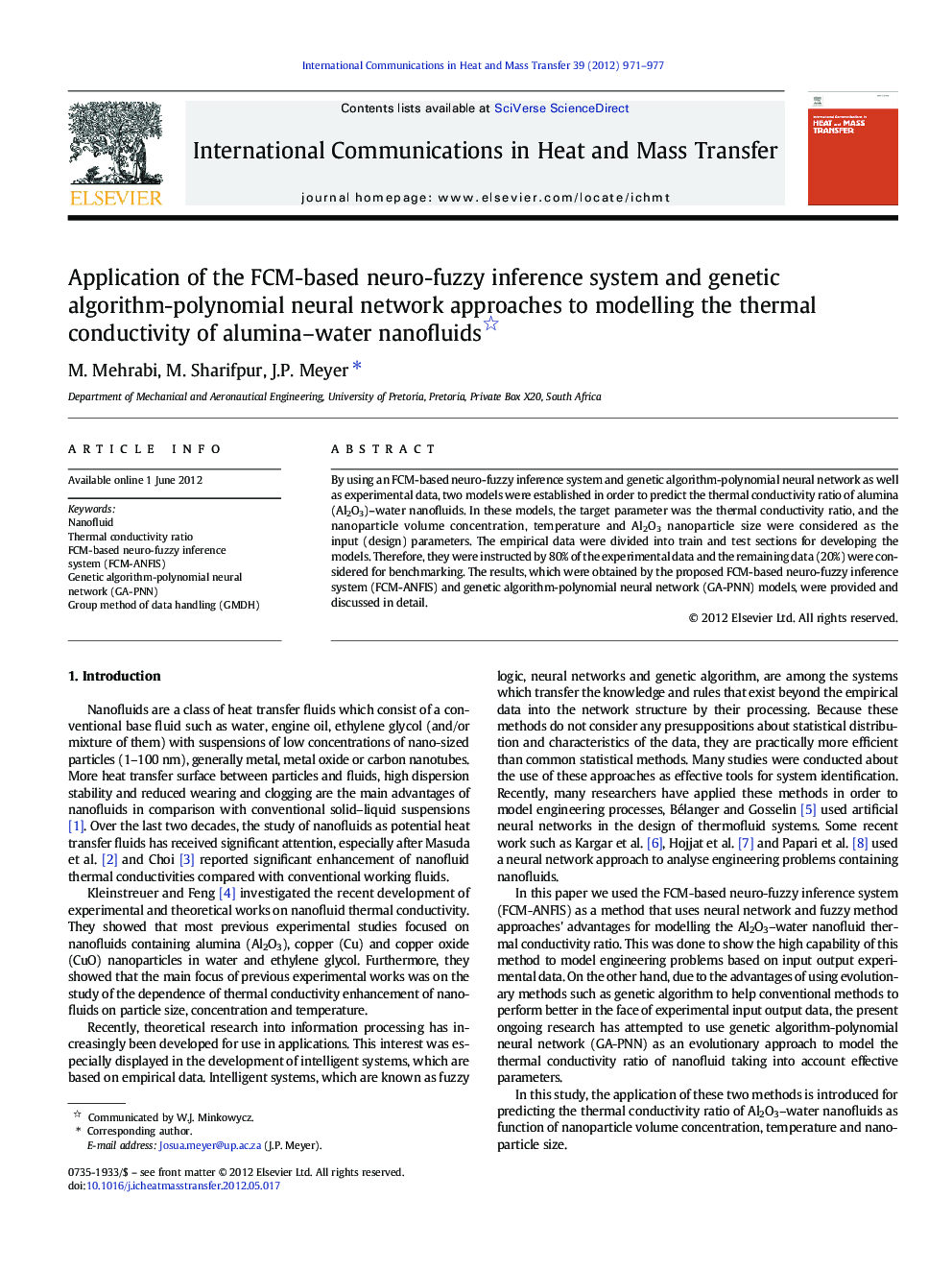| کد مقاله | کد نشریه | سال انتشار | مقاله انگلیسی | نسخه تمام متن |
|---|---|---|---|---|
| 653620 | 885208 | 2012 | 7 صفحه PDF | دانلود رایگان |

By using an FCM-based neuro-fuzzy inference system and genetic algorithm-polynomial neural network as well as experimental data, two models were established in order to predict the thermal conductivity ratio of alumina (Al2O3)–water nanofluids. In these models, the target parameter was the thermal conductivity ratio, and the nanoparticle volume concentration, temperature and Al2O3 nanoparticle size were considered as the input (design) parameters. The empirical data were divided into train and test sections for developing the models. Therefore, they were instructed by 80% of the experimental data and the remaining data (20%) were considered for benchmarking. The results, which were obtained by the proposed FCM-based neuro-fuzzy inference system (FCM-ANFIS) and genetic algorithm-polynomial neural network (GA-PNN) models, were provided and discussed in detail.
Journal: International Communications in Heat and Mass Transfer - Volume 39, Issue 7, August 2012, Pages 971–977